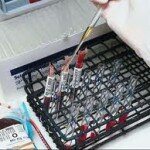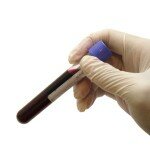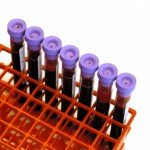So you’re a phlebotomist fresh out of school and ready to get a job, but employers all seem to want real-world experience. Volunteering for the local Red Cross chapter or blood bank is great, but maybe you’d like to experience a little adventure while you’re getting in your sticks. Or maybe you’re already working full-time in your field but would love a change of pace. In either case, consider an international volunteer position. There are thousands of positions for unskilled volunteers, but medical personnel are particularly in demand. A phlebotomist would be a valuable addition to a clinic in an area with a high concentration of blood-borne pathogens.
How To Get Started
 There are a number of organizations that place medical volunteers worldwide where they are needed most. Doctors Without Borders is an excellent place to start, and you can also try International Medical Volunteers Association, Global Volunteer Network, Project Hope, and International Medical Corps. Successful applicants not only have the requisite medical training and a clean bill of health, they also fit a personality profile of a relaxed, confident, and above all flexible person who can adjust to difficult conditions with a smile. Volunteers may also require immunizations and some training specific to the local conditions. Most organizations ask for a commitment of at least two months — International Medical Corps also has an on-call emergency response team of volunteers who may be deployed with 72 hours notice to deal with emergency conditions.
There are a number of organizations that place medical volunteers worldwide where they are needed most. Doctors Without Borders is an excellent place to start, and you can also try International Medical Volunteers Association, Global Volunteer Network, Project Hope, and International Medical Corps. Successful applicants not only have the requisite medical training and a clean bill of health, they also fit a personality profile of a relaxed, confident, and above all flexible person who can adjust to difficult conditions with a smile. Volunteers may also require immunizations and some training specific to the local conditions. Most organizations ask for a commitment of at least two months — International Medical Corps also has an on-call emergency response team of volunteers who may be deployed with 72 hours notice to deal with emergency conditions.
Where in the World?
Most volunteer organizations center their efforts in lesser-developed nations in Africa, Asia, and Latin America, but there may also be positions available in remote areas of other countries. For example, medical workers are often in high demand in rural areas of the United States; if you would prefer to work in Canada or Europe, a position like this might suit you. Project Hope volunteers live and work on a hospital ship that travels the globe to places where it is most needed.
Volunteer organizations make an effort to place people in their preferred regions, but your first-choice country may not be available. There will be many opportunities during the application process to specify your preferred nation or region and anywhere you absolutely do not want to go.
What To Expect
Wherever you go, your new living and work environments will not be what you are used to at home, but that’s part of the fun of traveling. Most volunteer positions will be in low-income or free clinics in either urban areas or remote villages with no hospital nearby. Some of them may be in areas affected by war or other crises. A volunteer phlebotomist may encounter diseases that don’t exist in the industrial world any more. Patients will suffer from malnutrition, poor sanitation conditions, and parasites. Depending on the area, a clinic may see a high percentage of HIV+ patients.
The clinic setting will be primitive compared to a hospital or laboratory in the United States. Equipment will be dated if it’s available at all, and basic supplies such as gloves, alcohol, and clean needles may be less than plentiful. Also, part of volunteering in a clinic where medical personnel are so limited means being flexible. You may be asked to perform other duties besides drawing blood.
A medical volunteer position in another country is an excellent way to gain valuable experience, travel, learn about a new culture, and make lifelong friends. Most important, it’s a way to earn self-confidence and get to know yourself and your capabilities. It’s not for everyone, but for those who are called, it’s a life changer.







